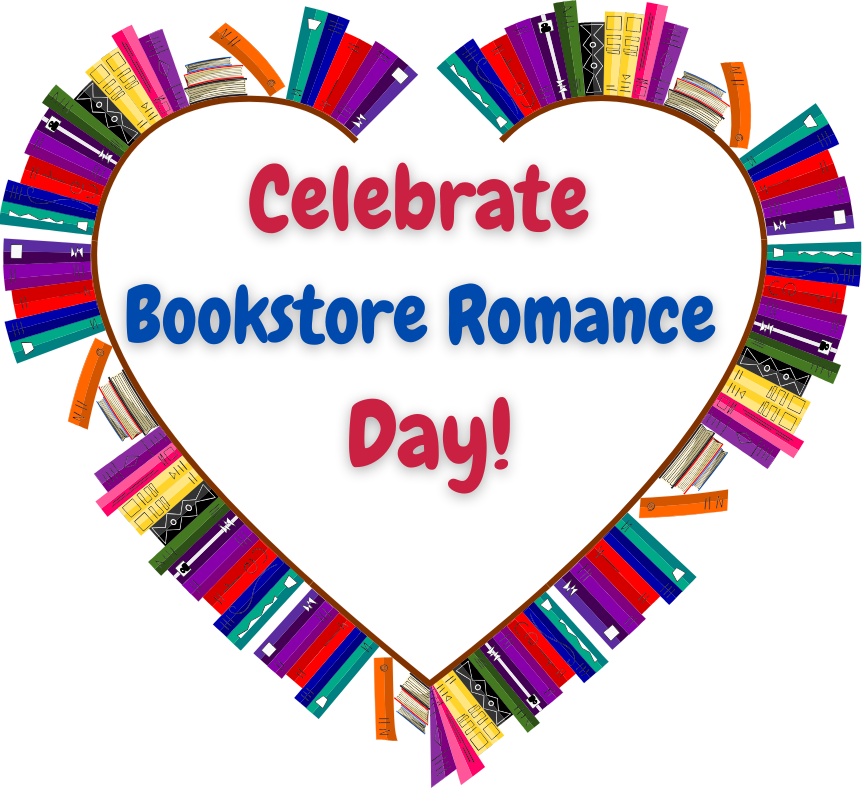|
Listen to or download this article:
|

CHANTICLEER 10 QUESTION AUTHOR INTERVIEW SERIES
with Award-Winning Author, Tim Facciola
Hello friends, we have another fabulous interview for you today. Author Tim Facciola took home the Chanticleer 2023 Overall Grand Prize for A Vengeful Realm, and the 2024 Grand Prize in the Series division for the first book in his The Scales of Balance Trilogy. We recently spoke with Tim to discuss his writing journey, his research methods, and the great success his series is seeing! Take a minute or two and get familiar with Tim—you won’t be sorry!

Chanti: Your A Vengeful Realm series creates this fascinating blend of fantasy and historical elements. I’m curious—what originally drew you to fantasy as a genre, and what made you decide to weave those historical themes throughout your story?
Facciola: Fantasy has always been my go-to. More specifically, sword and sorcery fantasy with a bend towards political intrigue that explores real-life social issues, interpersonal relationships, and the depth and nuance of the human condition. There is something special about the speculative genre that lowers a reader’s inhibitions and allows them to leave their preconceived notions, prejudices, biases, and sense of self outside the covers of the book. Divorced of the real-world for a time, they’re more likely to formulate new ideas, opinions, and understandings that aren’t swayed by our real-life culture. My hope is that my stories don’t necessarily provide answers, but rather they invite readers to ask better questions of themselves and how they see the world. I don’t think there is a better medium than fantasy to accomplish just that.
Chanti: Fantasy does give writers incredible freedom to create their own rules and style. When you’re crafting your stories, do you find yourself sticking to traditional fantasy conventions, or are you more of a rule-breaker?
Facciola: I spent a lot of time learning the rules, studying story structure and the psychology associated with story and how it impacts us. There’s an infinite amount of rules out there, and I do believe the people that came up with them are onto something; but as much as it’s important to know the rules, my favorite rule is the last rule at the bottom of all the best “rules of writing”: Do what serves your story best. I think you have to know the rules to break the rules, and even in breaking the rules, it’s important to know which rules and why. But I wouldn’t say I make up my own rules.

Chanti: I love that philosophy! Speaking of your process, you sound like someone who puts a lot of thought into structure. How organized are you when it comes to your actual writing routine?
Facciola: I am what people might call a plotter or an architect. I spend a lot of time in the pre-drafting phase building out my world, the history, cultures, religions, myths & legends, how accurate the perceptions of those things actually are, how the magic system works, etc. Then once I feel like I’ve established a world that could possibly feel lived in, I build out my cast of characters and the role functions they’ll serve within the story. Depending on how fleshed out my initial concept is, I might go into their internal arcs or the thematic development I want their arc to convey. Sometimes that is something learned along the drafting/revision journey. Once I have my characters and the world they’ll be challenging the status quo of, I start plotting. For plotting, I start out with a two to three sentence elevator pitch, then expand it into a 7-10 sentence synopsis, then a chapter by chapter outline. And if all goes well, then I might actually start writing the story!
Chanti: That’s incredibly thorough! With all that detailed planning, I have to ask—do you ever hit those dreaded writer’s block moments? And if so, what’s your strategy for getting past them?
Facciola: A complicated answer, but I don’t believe in it. Sure, there might be times in which a particular scene isn’t going the way you want, or you’re not quite sold on how the blocking is set up or how a particular plot point lines up. But just like any puzzle, there’s an answer. Whenever I feel stuck, I go through a series of questions to find out how I got to this point of “stuckness.” The writers I work with know me as the “Why-guy” because I ask them “Why?” about a dozen times. You have all the answers, you just need to ask yourself the right question, so Who, What, When, Where, Why, and How are my favorite places to start. I think that writer’s block only comes from an unwillingness to adapt, make changes, kill darlings, etc. So, when in doubt, get up, stretch, go for a walk, make sure you’ve drunk plenty of water, had a healthy snack—all those things can help too.
Chanti: That’s a very practical approach. Pivoting a little bit, every writer has their influences, and I’m curious about yours. Can you share five authors who’ve really shaped your work and tell us a little about how they’ve impacted your writing?
Facciola: George RR Martin got me back into reading with A Song of Ice and Fire. He also convinced me to finish my series before releasing it which was why I wrote all three books of the A Vengeful Realm trilogy before I published the first book. I never wanted to leave readers hung out to dry waiting from 14+ years for the next book to come. But in all seriousness, I am fascinated by his worldbuilding and how Martin incorporated history into fantasy.
Some of my favorite books of the last decade were by Brandon Sanderson. I love the interconnected world he has built and all the easter eggs he’s laid for his most devoted readers, but simultaneously, I love how accessible a lot of his stories are. As a businessman, I’m awestruck by the way he has built his author brand on stories that always point to hope.
Joe Abercrombie’s character work is extremely well done. While I share a completely different stance on how I view humanity, there is no denying the man knows how to craft characters.
I didn’t fully understand a character’s “voice” until I read Pierce Brown’s Red Rising series. That “you know it when you see it,” type of command that brings words on the page to life—I try to channel that element from him to find my own narrative voice.
Theme is the point with Nathan Makaryk’s work. For me it’s the be all, end all, and proving that theme through the main characters’ journey throughout the plot—that’s where the magic happens. Makaryk’s Nottingham, did exactly that with supreme depth and from so many different angles. Truly a masterpiece that I try to emulate.
Chanti: It’s clear you’ve dived in and truly studied this craft and genre. What would you say are your strongest areas as a writer? And if someone is struggling in those same areas, what advice would you offer them?
Facciola: I run a Discord writing group through my Patreon, coaching writers on all sorts of areas. One area I particularly excel at is my combat scenes, but that’s not part of all stories. But what is part of all stories (at least the readers of those stories) is humans. So if we’re writing for humans, we as authors better be able to relate to those humans. Having a foundational understanding of psychology, moral reasoning, and relationships is imperative. I use psychologist Lawrence Kohlberg’s theories of moral development to better understand how my characters see themselves, each other, and the world. Understanding and communicating the “whys” behind the “whats” that our characters do is something I often see missing from most new writers’ work.

Chanti: Using psychology to inform your character development is brilliant! We often ask about promoting a community of literacy and supporting other writers, and you mentioned your Discord group. Can you tell us more about that?
Facciola: On my Discord server, I help fantasy writers through a combination of community building, education, and networking. It’s difficult being an indie author, and it’s so easy to suffer in silence all by your lonesome. Having struggled with this myself, I’ve made it my mission to create a place for fantasy writers to develop their craft, build their community, and connect with industry professionals through guest lectures and workshops.
Chanti: That work in community building is essential! As we start to wrap up, I’m curious about what’s coming next. With the trilogy complete, what exciting projects are you working on? What can your fans look forward to?
Facciola: With the A Vengeful Realm trilogy complete and the prequel novel released back on January 21st, 2025, I’m currently writing a new series within the same world. I’m pitching it as Mulan enters the Hunger Games to solve the murder of her betrothed. The working title is Boon Blessed in which aspirants compete in a series of trials to appeal to the gods and receive their favor in the form of magical abilities, but for every boon comes a bane, and not everyone is entitled to receive it.

Chanti: I’m already adding it to my TBR. When you think about your ideal reader for A Vengeful Realm or this upcoming Boon Blessed what kind of person comes to mind?
Facciola: Not to give a complicated answer, but here is my complicated answer: I believe there are a few tiers to what fantasy readers want out of a story. Some readers just want distraction—escapism from their day to day. It’s a pretty low bar, but for some, that’s all they ask for in a story. For some, it is entertainment they are looking for—not only do they want to be distracted, but they want to be entertained! A third group of readers want connection—they want to feel something beyond simple distraction and entertainment. And lastly, some readers want to be challenged—mentally and/or emotionally.
My perfect reader is in that third to fourth category. Yes, there is certainly escapism, and undoubtedly my goal is to entertain, but if that’s all you’re after, there are probably more accessible reads that you’ll enjoy more. But for readers who are looking to feel something or they’re open to being challenged about how they think or feel about particular topics—I write for readers like you.
Chanti: That thoughtful consideration of audience is so important to connecting with readers. Here’s my final question, and it’s one I think every author should hear: What’s the most important thing a reader can do to support an author they love?
Facciola: Word of mouth is always the best form of advertising. If you read a book and you love it, tell someone about it. Better yet, gift them a copy. Then, write a review on Amazon or Goodreads, or post about it on social media—whatever you’re into. But most importantly, reach out to the author and tell them that their creation meant something to you. Art was meant to be shared, so spread the love.
Chanti: Yes! Authors and readers walk hand-in-hand, and their support for their favorite authors is very much appreciated! Thank you, Tim, for this peek into the world of Tim Facciola and his Vengeful Realm!

Tim Facciola is an author, virtual fitness professional, and former punk rock musician based in Arizona. His debut novel, The Scales of Balance from the series A Vengeful Realm, combines his love for epic fantasy with insights from his fitness training. Alongside his writing, Tim offers Gladiator Training and author coaching.
You can read more about Tim Facciola and his A Vengeful Realm series here.









Leave A Comment